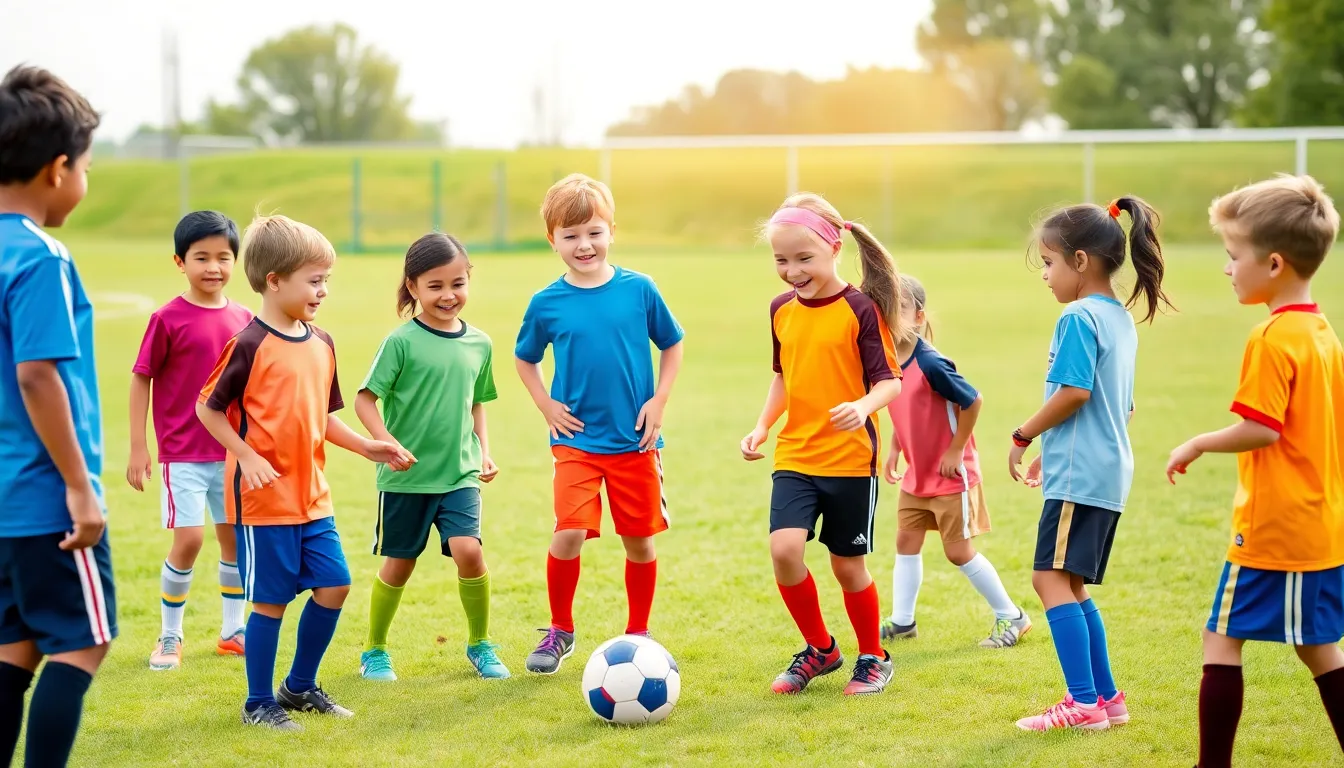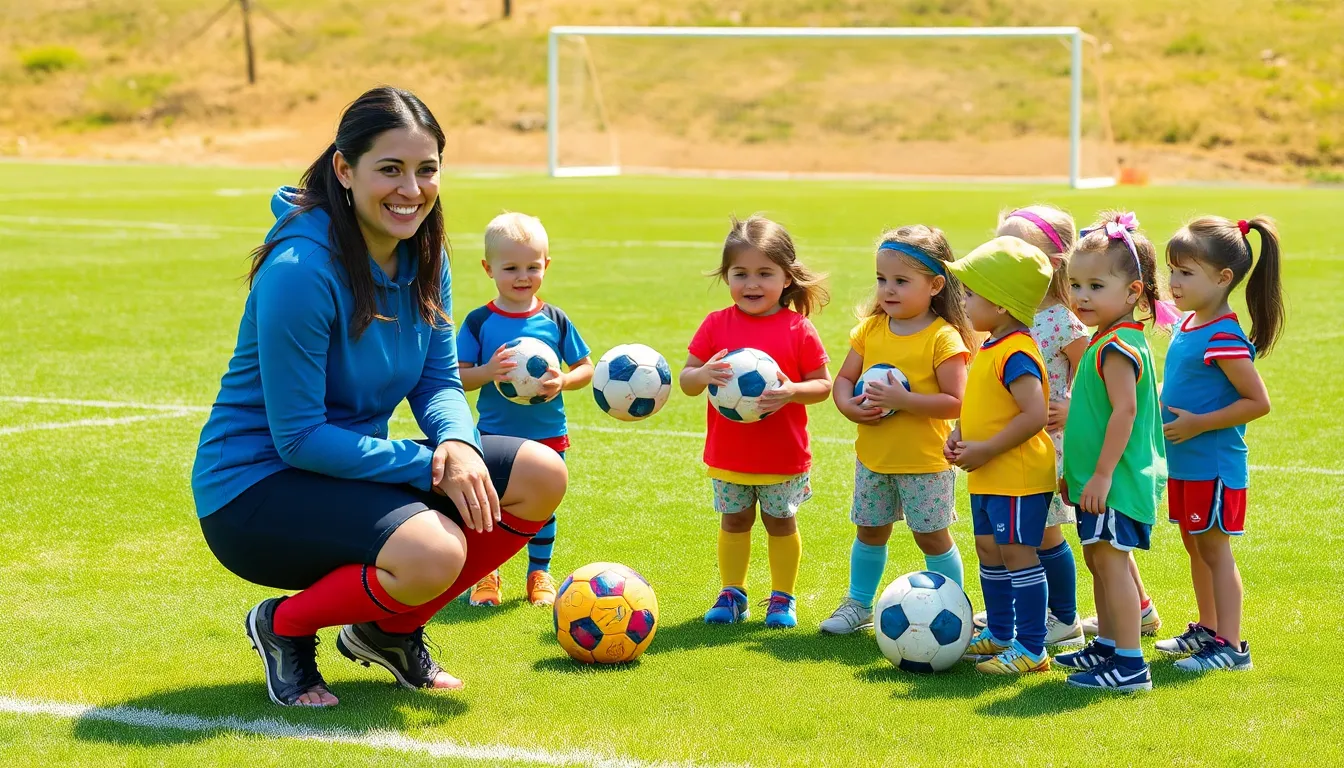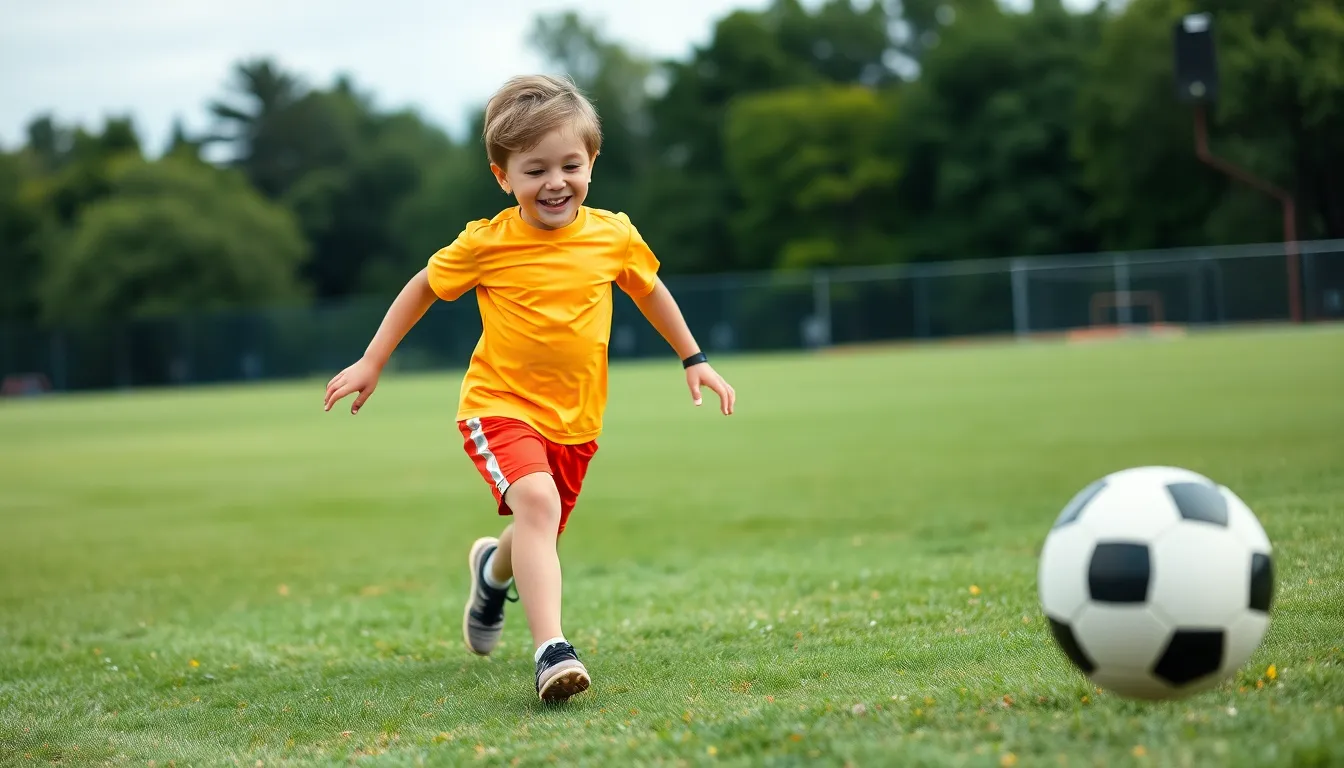In a world where kids trade video games for soccer balls and dodgeballs, children’s sports instructors are the unsung heroes of the playground. These dedicated professionals not only teach the fundamentals of sports but also help shape the next generation of champions—one giggle at a time. Imagine a coach who can turn a simple game of tag into a lesson on teamwork and resilience, all while dodging flying soccer balls and the occasional snack break.
But it’s not just about the trophies and medals. Children’s sports instructors foster a love for physical activity that lasts a lifetime. They create a fun environment where kids can learn valuable life skills, develop friendships, and discover their hidden talents. Whether it’s basketball, gymnastics, or a good old-fashioned game of kickball, these instructors are the magic wands that transform children into confident athletes and, more importantly, happy kids.
Table of Contents
ToggleOverview Of Children’s Sports Instructors
Children’s sports instructors play a crucial role in shaping young athletes. They engage kids in various sports, fostering not just skills but also a passion for physical activity. Instructors emphasize teamwork, communication, and social skills, helping children learn valuable lessons beyond the playing field.
Qualified instructors offer structured lessons tailored to different age groups and skill levels. They introduce fundamental techniques for multiple sports, such as soccer, basketball, and swimming. Each session focuses on improving physical abilities while ensuring children enjoy the activities.
Safety remains a top priority for sports instructors. They assess individual needs, monitor skill development, and adjust activities accordingly. Creating a supportive environment encourages young athletes to take risks and embrace challenges.
Instructors often collaborate with parents and guardians, reinforcing the importance of overall development. Regular feedback helps track progress, ensuring children remain motivated and engaged. Building positive relationships between instructors and families contributes to a child’s confidence and enjoyment in sports.
Certifications and ongoing education enhance an instructor’s ability to teach effectively. Many pursue specialized training in sports coaching, child development, and safety protocols. Continuous professional development ensures they stay updated on best practices in coaching and child engagement.
Positive role models often emerge from their work as instructors. Children admire the dedication, passion, and enthusiasm these professionals showcase. By embodying values of sportsmanship and perseverance, instructors significantly influence the growth of young athletes.
Importance Of Children’s Sports Instructors

Children’s sports instructors play a crucial role in supporting physical and social development in kids. They create environments where children learn through play while developing essential skills.
Physical Development
Children engage in various sports activities that enhance their physical abilities. Instructors focus on building strength, coordination, and flexibility through age-appropriate exercises. Lessons include basic techniques from sports like soccer, basketball, and swimming. Safety comes first, with instructors ensuring all children practice in a secure setting. Participants often experience improvements in motor skills and overall fitness. Structured activities help them discover their physical capabilities while promoting a healthy lifestyle. Kids also build endurance and strength through consistent participation. Physical development facilitated by instructors lays the foundation for lifelong athletic pursuits.
Social Skills Enhancement
Social interaction flourishes in sports settings under the guidance of instructors. Teamwork becomes a cornerstone of every lesson, encouraging children to communicate and collaborate with peers. Instructors promote sharing, empathy, and conflict resolution through various activities. Children also learn to celebrate successes together, fostering a sense of camaraderie. Feedback from instructors helps kids understand the value of cooperation in achieving common goals. Trust and friendships form as they train alongside each other, building strong bonds. Ultimately, enhanced social skills gained during sports contribute positively to their overall development.
Qualifications And Skills Required
Children’s sports instructors must possess specific qualifications and skills to effectively engage young athletes. Certification and training play critical roles in establishing credibility and safety.
Certification And Training
Certifications in coaching, first aid, and CPR signify a commitment to safety and professionalism. Many instructors pursue courses in child development and sports psychology to better understand children’s needs. Training programs often include hands-on experience, equipping instructors with practical skills. Organizations like the American Sport Education Program (ASEP) and National Alliance for Youth Sports (NAYS) offer valuable resources. Ongoing professional development remains essential, as sports techniques and safety protocols constantly evolve.
Essential Personal Traits
Strong communication skills attribute to effective instruction. Instructors show enthusiasm, fostering a positive environment for children. Patience becomes essential when working with diverse skill levels among young athletes. Empathy enables instructors to connect with kids, helping them navigate challenges. Creativity helps instructors design engaging, age-appropriate activities that maintain interest and motivation. Adaptability proves vital, allowing instructors to adjust approaches based on individual needs and group dynamics.
Types Of Sports Instructed
Children’s sports instructors engage young athletes in both individual and team sports, ensuring a comprehensive approach to physical activity. Each type of sport offers unique benefits and learning opportunities.
Individual Sports
Individual sports allow children to develop personal skills and self-discipline. Instructors focus on activities such as swimming, tennis, and gymnastics, which promote independence and self-confidence. These sports often emphasize personal goal setting and the improvement of techniques. Through one-on-one instruction, kids receive tailored feedback that enhances skill development. Instructors nurture persistence and resilience, vital traits for individual success, while also creating a fun atmosphere that encourages the exploration of personal abilities.
Team Sports
Team sports foster collaboration and social skills among children. Activities like soccer, basketball, and baseball teach young athletes the importance of teamwork and effective communication. Instructors guide players in strategizing and understanding their roles within a group, helping to build trust among teammates. Emphasizing teamwork creates an environment where children learn to support one another, celebrate collective achievements, and resolve conflicts. These experiences further develop children’s social interactions and teach them the significance of working toward shared goals.
Challenges Faced By Children’s Sports Instructors
Children’s sports instructors encounter various challenges that impact their ability to engage and develop young athletes.
Engagement And Motivation
Motivating children to participate actively in sports remains a primary challenge. Instructors often tailor activities to match individual interests and energy levels, ensuring fun remains central. Providing varied drills and games captures attention better, making each session enjoyable. Understanding the importance of positive reinforcement, they recognize effort and achievement, fueling children’s enthusiasm. Adapting coaching styles based on feedback helps maintain engagement. Instructors also foster a sense of community, encouraging friendships among participants. Building connections enhances enjoyment and motivation, leading to improved performance. Creating an atmosphere where children feel valued encourages consistent involvement, critical for their long-term athletic growth.
Safety And Injury Prevention
Ensuring safety and preventing injuries poses significant challenges for children’s sports instructors. Thorough risk assessments of activities help identify potential hazards. Instructors consistently enforce safety protocols, teaching children proper techniques to minimize risks. Understanding age-appropriate sports practices allows them to tailor lessons effectively. Regular equipment checks guarantee that all gear remains safe and functional. Instructors also emphasize the importance of hydration and warm-up exercises to prepare bodies for activity. When incidents occur, swift response can mitigate situations, along with first aid training ensuring preparedness. Creating a safety-first culture among participants encourages responsible behavior, allowing instructors to foster a secure environment for all.
Children’s sports instructors are essential in shaping young athletes’ experiences and development. Their commitment to fostering a love for physical activity goes beyond teaching skills; they create a nurturing environment where children can thrive socially and emotionally. By emphasizing teamwork and resilience, they prepare kids for challenges both in sports and in life.
The impact of these instructors is profound as they guide children in discovering their strengths and building confidence. Through tailored lessons and ongoing support, they ensure that every child feels valued and engaged. As positive role models, they inspire the next generation to embrace sportsmanship and personal growth, laying the groundwork for a healthy and active lifestyle.



